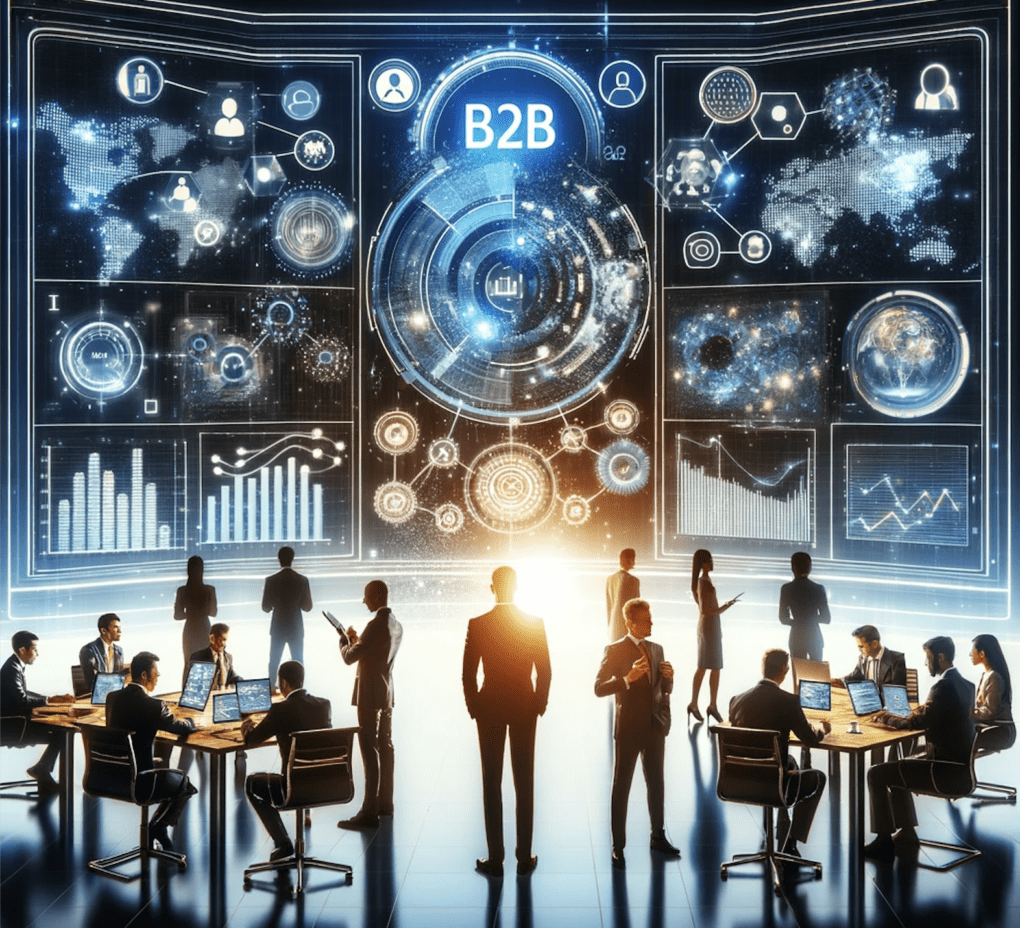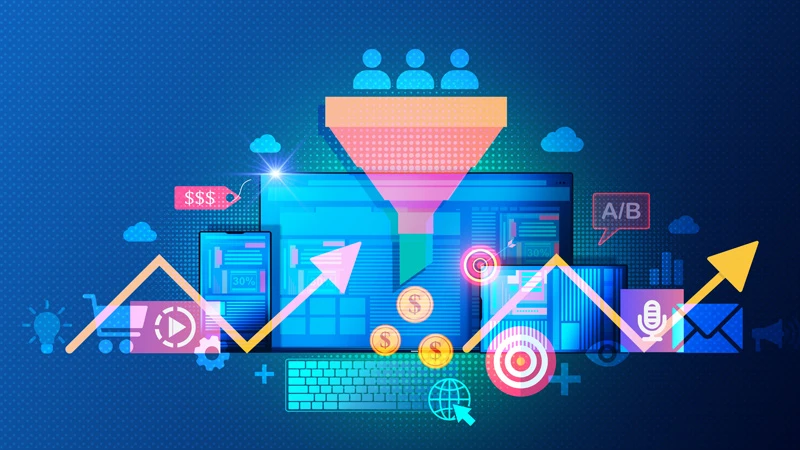How AI Automation For B2B reduces costs while improving efficiency
Wiki Article
Unlock Efficiency and Growth With AI Automation for B2B Firms
AI automation is changing the landscape for B2B firms. It minimizes and enhances procedures dependence on human intervention. This change allows businesses to make quicker, data-driven decisions. As organizations check out which refines to automate, they have to also think about the right devices to execute. Difficulties continue to be in adopting AI modern technology. The effects of these adjustments might shape the future of many firms in means yet to be completely understoodRecognizing AI Automation in the B2B Context
As organizations significantly seek efficiency, recognizing AI automation in the B2B context comes to be crucial. AI automation entails using innovative modern technologies to simplify procedures, lower human treatment, and enhance decision-making procedures. In the B2B landscape, this can manifest in numerous forms, such as automating customer solution communications, taking care of supply chain logistics, or enhancing advertising and marketing projects. Business can utilize AI to evaluate huge datasets promptly, enabling them to recognize trends and understandings that educate strategic options. AI systems can integrate effortlessly with existing technologies, supplying a natural platform for taking care of company features. This understanding prepares for organizations to discover exactly how AI can change their operations, improve performance, and eventually foster sustainable development in an open market.Secret Advantages of Executing AI Automation

Recognizing Procedures Appropriate for Automation

Selecting the Right AI Equipment for Your Business
When B2B business take into consideration automating their processes, choosing the appropriate AI tools ends up being essential for achieving preferred end results. Companies ought to begin by reviewing their distinct demands and objectives, making sure positioning with business objectives (Minarik AI). Assessing the versatility, combination, and scalability capacities of prospective devices is essential, as these elements determine long-lasting effectiveness. Organizations ought to additionally consider user-friendliness and the level of assistance offered by vendors, as these components can impact successful execution. Additionally, evaluating consumer testimonials and study can supply understandings right into just how particular AI services carry out in real-world situations. By thoroughly picking AI devices that fit their operational requirements, B2B companies can enhance effectiveness and drive growth while lessening possible disruptionsGetting Rid Of Obstacles in AI Adoption
B2B business usually experience considerable difficulties in taking on AI modern technologies, particularly issues associated with data top quality and resistance to transform management. Poor data top quality can impede the effectiveness of AI systems, while staff member unwillingness to accept brand-new procedures can stall implementation efforts - AI Automation For B2B. Attending to these difficulties is crucial for successful AI assimilation and maximizing its potential benefitsInformation Quality Issues
Ensuring high data high quality is essential for the effective adoption of AI innovations in business-to-business atmospheres. Incorrect, insufficient, or out-of-date data can severely prevent AI efforts, leading to wrong insights and inadequate decision-making. Business frequently encounter difficulties such as data silos, incongruities across different resources, and a lack of standard data layouts. To conquer these issues, companies should buy information cleansing, assimilation, and governance procedures. Carrying out robust information management methods ensures that the details fed into AI systems is reliable and appropriate. Moreover, promoting a society of data high quality recognition among workers can enhance data precision with time. By resolving data quality worries, B2B firms can launch the full capacity of AI automation, driving effectiveness and development.Change Administration Resistance

Measuring the Influence of AI Automation
Determining the impact of AI automation in B2B companies calls for a clear understanding of crucial performance indications (KPIs) that line up with company objectives. Reliable information analysis techniques are essential for analyzing the results, while robust ROI analysis methods assist figure out the financial advantages of automation initiatives. With each other, these components provide an extensive structure for evaluating AI's payments to organizational success.Secret Performance Indicators
Secret efficiency signs (KPIs) function as necessary tools for B2B firms to evaluate the performance of AI automation efforts. By developing clear metrics, organizations can determine renovations in operational performance, expense decrease, and income development directly attributable to automation. Typical KPIs include cycle time decrease, mistake prices, client fulfillment scores, and staff member performance levels. These indicators provide understandings into exactly how AI systems are enhancing procedures and improving general performance. Additionally, tracking KPIs makes it possible for business to recognize areas for more renovation and to line up AI automation efforts with strategic service objectives. Eventually, a distinct framework of KPIs assurances that B2B business can quantitatively review the impact of AI automation on their procedures and drive constant growth.Data Analysis Techniques
Reliable information evaluation strategies play a vital duty in reviewing the impact of AI automation within B2B companies. By utilizing statistical methods, organizations can identify trends and patterns in operational data, allowing them to examine the effectiveness gains achieved through automation. Methods such as regression analysis and time series forecasting supply understandings right into how AI-driven processes influence productivity and decision-making. Additionally, data visualization tools can successfully interact searchings for to stakeholders, facilitating informed calculated choices. Artificial intelligence formulas can further enhance analysis by predicting future outcomes based on historical information, using actionable insights. Inevitably, these strategies make it possible for B2B companies to determine success and optimize their AI automation campaigns, making certain placement with service objectives and boosting general performance.ROI Assessment Methods
Evaluating the roi (ROI) of AI automation is essential for B2B firms seeking to recognize the monetary implications of their technical efforts. Firms can utilize various ROI assessment techniques to gauge the effectiveness of AI implementations - AI Automation For B2B. One reliable technique includes determining cost financial savings by contrasting operational costs before and after automation (Business Process Automation). Additionally, measuring productivity improvements through key performance indicators (KPIs) aids evaluate the advantages of AI. Client satisfaction metrics can also give understandings right into the effect of automation on service top quality. To assure a complete evaluation, companies need to think about both direct economic returns and abstract advantages, such as improved decision-making capacities and affordable advantage. This diverse examination allows B2B firms to make informed decisions concerning future financial investments in AI innovationFuture Trends in AI Automation for B2B Firms
What developments lie ahead for AI automation in B2B business? Arising patterns show a significant shift towards enhanced data analytics abilities, allowing businesses to make even more enlightened choices. Predictive analytics will come to be progressively essential, enabling firms to expect market modifications and client demands. In addition, the combination of AI with Internet of Things (IoT) innovation is anticipated to enhance procedures by offering real-time understandings and automation of processes. Business will certainly additionally concentrate on improving client experiences via personalized marketing driven by AI algorithms. Moreover, advancements in all-natural language handling will certainly help with far better interaction in between customers and services. As these trends evolve, B2B firms have to adjust to utilize AI automation successfully, making sure sustained growth and affordable benefit.Often Asked Concerns
What Industries Benefit one of the most From AI Automation in B2B?
Production, financing, health care, and logistics industries profit one of the most from view AI automation in B2B. These markets take advantage of AI to optimize procedures, improve decision-making, and enhance overall functional effectiveness, driving considerable growth and technology.Just How Does AI Automation Effect Employee Roles and Responsibilities?
AI automation improves worker duties and obligations by improving repeated tasks, allowing workers to focus on tactical initiatives. This change cultivates ability advancement, improves productivity, and urges partnership, ultimately driving business growth and development.What Are Common False Impressions Regarding AI Automation in B2B?
Typical misconceptions about AI automation in B2B consist of concerns of task loss, beliefs that AI can fully change human judgment, and ignoring the importance of partnership in between AI systems and workers for ideal outcomes.Exactly How Can Organizations Ensure Information Personal Privacy With AI Automation?
Businesses can guarantee data personal privacy with AI automation by implementing robust security procedures, sticking to regulatory conformity, performing regular audits, and training employees on data managing techniques to mitigate risks and safeguard sensitive details.What Are the Prices Linked With Carrying Out AI Automation?
The prices linked with applying AI automation consist of software program procurement, framework upgrades, training employees, recurring upkeep, and prospective downtime during combination. Furthermore, companies may sustain expenditures connected to information safety and conformity procedures.Determining the effect of AI automation in B2B companies requires a clear understanding of key efficiency indications (KPIs) that straighten with company goals. Key efficiency indications (KPIs) offer as necessary tools for B2B business to evaluate the efficiency of AI automation efforts. Reliable data evaluation strategies play a vital duty in reviewing the impact of AI automation within B2B companies. Evaluating the return on financial investment (ROI) of AI automation is essential for B2B firms seeking to comprehend the financial implications of their technical campaigns. What advancements lie in advance for AI automation in B2B companies?
Report this wiki page